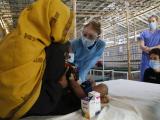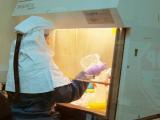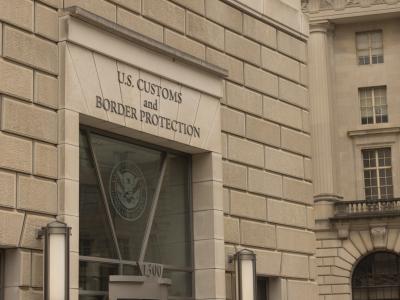Jul 26, 2011 (CIDRAP News) – The US government's efforts to promote the development of new medical countermeasures (MCMs) against biological and other unconventional weapons are making headway, with more than 70 products now in development, a top Department of Health and Human Services (HHS) official told a House committee recently.
Dr. Nicole Lurie, HHS's assistant secretary for preparedness and response, made the comment at a Jul 21 hearing of the House Energy and Commerce Subcommittee on Health, which focused in part on a bill to reauthorize provisions of the Project Bioshield Act of 2004 and the Pandemic and All-Hazards Preparedness Act (PAHPA) of 2006.
In prepared testimony, Lurie said efforts by HHS's Biomedical Advanced Research and Development Authority (BARDA), along with changes made since a countermeasures review last year, "are beginning to bear fruit."
"We have seen a continued growth in interest in companies partnering with BARDA, and now have over 70 products in some stage of development," she stated.
The 2006 preparedness law established BARDA and also revived Project BioShield, which was designed to foster the development of countermeasures against chemical, biological, radiological, and nuclear weapons.
Part of the hearing focused on legislation offered by Rep. Mike Rogers, R-Mich., called the Pandemic and All-Hazards Preparedness Act of 2011, said subcommittee Chairman Joseph R. Pitts, R-Pa., in a prepared opening statement. Rogers' bill would reauthorize parts of Project BioShield and PAHPA.
Much of Lurie's testimony focused on an update on the countermeasures review conducted by HHS in 2010. The review, prompted mainly by the slow delivery of vaccine during the influenza pandemic in 2009, aimed to identify "choke points" that were stalling the delivery of countermeasures.
The MCM review recommended establishing a Concept Acceleration Program (CAP) to empower the National Institutes of Health, working with various partners, to speed the translation of promising scientific discoveries into usable products, Lurie explained.
"We are committed to applying $50 million towards CAP activities in FY [fiscal year] 2011," Lurie stated. "Evaluations are in progress to identify CAP product candidates."
Another recommendation of the MCM review was to set up a private, not-for-private corporation, called Strategic Investor, designed to "create a viable biodefense business sector by supporting companies that possess strategic technologies applicable to both commercial and government needs," Lurie said. The corporation would function somewhat like a venture capital firm.
"The Strategic Investor initiative would promote the transition of medical countermeasure development and procurement from a 'one bug, one drug' approach to an enterprise capable of responding to any threat at any time," she said. HHS officials have spoken previously about the need for countermeasures that could address more than one pathogen or condition.
Members of the subcommittee appeared to support the Strategic Investor proposal, according to a Jul 25 report from the National Journal, which was based on a Congressional Quarterly report.
Another recommendation from the MCM review was to set up "the Centers for Innovation in Advanced Development and Manufacturing," which would increase domestic manufacturing and surge capacity for countermeasures and also would make influenza vaccine in the event of a pandemic. Lurie said HHS in March issued a request for proposals for the centers.
Lurie also talked about the Food and Drug Administration's (FDA's) efforts to improve its regulatory science and review capabilities related to MCMs, with the aim of establishing "clear regulatory pathways" for such products.
In other comments, Lurie said clarifications on certain issues related to the emergency use of the Strategic National Stockpile of drugs and medical equipment are needed to help ensure that such supplies can be dispensed as quickly as possible.
For example, the legal implications of using countermeasures covered by the FDA's Shelf Life Extension Program are unclear, she said. She added that HHS would like increased flexibility to issue emergency use authorizations for countermeasures in advance of an event, as this would speed dispensing if an event occurred.
Lurie also said the Obama administration is proposing to spend $765 million in Project Bioshield funds in fiscal year 2012 on three priority areas: anthrax vaccines and treatments, broad-spectrum antimicrobial drugs, and treatments and diagnostics for radiation sickness.
See also:
May 18 CIDRAP News story "Senate starts work on preparedness law reauthorization"
Aug 19, 2010, CIDRAP News story "HHS sees greater federal role in building biodefense tools"



















